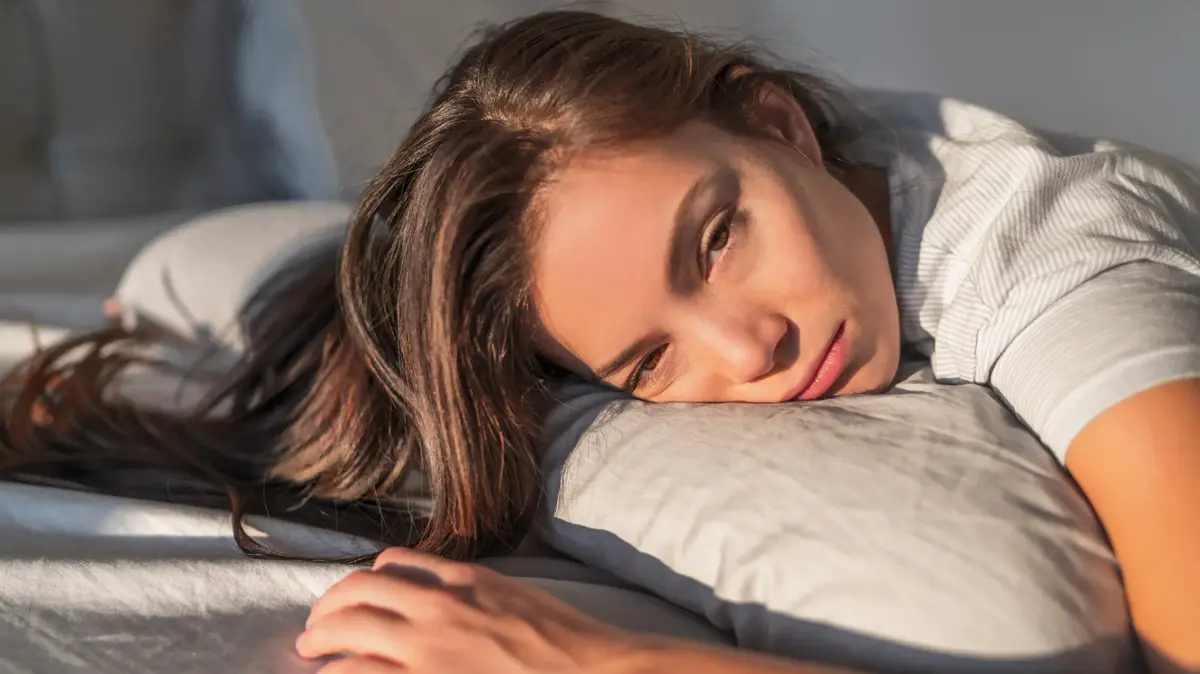Iris Cole interviews Prof. Rivi Tauman on the subject of sleep disorders - causes and treatment/Walla system
Even during periods of routine, sleep disorders are among the most common health problems in the general population.
It is likely that no one will really be surprised to find out that in times of stress and crisis, such as since the beginning of the war on October 7, many people report a significant decrease in the quality of their sleep.
Good sleep, i.e. sufficiently long and of good quality, was found to be significantly associated with optimal physiological and cognitive functioning and a sense of well-being.
Conversely, short and/or poor quality sleep, characterized for example by significant difficulties falling asleep, many awakenings during the night, excessive sleepiness during the day, nightmares, and early awakening and inability to fall asleep afterwards - may have a negative impact on a person's health and functioning in day-to-day life and on the quality his life
So what can be done?
What can help us sleep better at this time, when stress and anxiety are high?
A period that brings a lot of sleep disturbances.
A woman has trouble falling asleep/ShutterStock, Maridav
What is the relationship between sleep, health and daily functioning?
Sleep is an essential, reversible and cyclical physiological state.
To function optimally on a daily basis, healthy adults need about 7-8 hours of sleep a day.
During sleep, the body's systems stabilize, the immune system strengthens, the body regenerates, therefore lack of sleep may cause damage to a variety of systems and an increased risk of morbidity.
The quality of sleep is affected by a variety of factors, including the level of activity during the day, the duration and timing of exposure to light (natural and artificial), timing of meals and levels of stress and anxiety.
It is important to remember that when you don't sleep well, damage is often evident not only to a variety of important physiological processes (for example, metabolism and hormone secretion), you can also expect damage to the ability to learn and essential cognitive processes.
For example, a disturbance in attention, difficulties in emotional and behavioral regulation, impaired decision-making ability and difficulty in judgment and risk management may appear.
All of these may significantly affect the quality of the performance of many daily tasks.
More in Walla!
Virtual reality therapy: a treatment for coping with anxiety
In collaboration with zap doctors
Why does sleep go wrong in situations of stress and risk?
Stress is a general reaction of the body to any situation that threatens its homeostasis mechanisms.
In periods of stress, mental stress and a sense of danger, the "fight or flight" response is activated as a survival mechanism, through which the resources of the body and mind are mobilized to deal with the situation optimally.
It is true that the "fight or flight" response is useful and essential to our existence, but when the body is subjected to long-term stress and constant vigilance such as that which has characterized our lives since October 7, its resources are depleted and its function may be impaired.
Over time, the mechanism of "fight or flight", combined with other mechanisms (for example the secretion of stimulating hormones), prevent the body from restorative, regulated and relaxing sleep.
You can improve sleep.
Sleeping Woman/ShutterStock, PeopleImages.com - Yuri A
How to improve sleep?
In order to improve the quality of sleep in the contemporary reality of our lives, it is very important to create a sleep routine and adjust the sleeping environment.
Occupational therapy is a therapeutic profession that deals with promoting health and quality of life through involvement in meaningful occupations.
By building a routine suitable for the person and making adjustments to their work environment, including their sleeping environment, the ultimate goal of occupational clinics is to allow every person, as much as possible, the opportunity to deal optimally with day-to-day tasks and achieve maximum independent functioning.
In order to improve your sleep at this time, we suggest following a sleeping routine and creating an adapted environment.
To achieve this, it is recommended to pay attention to the following highlights:
Exposure to sunlight:
during the day, be sure to go outside during the day and expose (safely) to sunlight for at least an hour a day.
Being outside during the day and exposure to sunlight has anti-depressant properties.
Furthermore, sunlight functions as a synchronizer of the sleep-wake cycle with the environment and also improves the quality of sleep at night.
Be sure to prepare the bedroom:
make sure it is in order, use comfortable bedding, make sure the temperature is comfortable for you and sleep in the dark.
If sleeping in the dark is stressful, use weak lighting, low and far from your bed.
Include a shower/bath in your evening routine and before bed.
Try to schedule going to bed and going to sleep at a fixed time:
avoid exposure to media in bed completely.
The organization of the environment and the regularity of the routine may increase the feeling of control over the situation, along with a feeling of enjoyment from the conditions you have created.
Before you fall asleep, make a plan for tomorrow, to reduce feelings of uncertainty.
You can use a heavy blanket, which exerts gentle pressure on the body:
the feeling of gravity, simulates the feeling of a comforting hug and may promote calmness, reduce anxiety and encourage good sleep.
In addition, you can use "white noise", a uniform, monotonous sound that is found to help quality sleep.
Please note, if the quality of your sleep has decreased significantly and for weeks the situation does not improve or worsens, it is important to seek medical advice.
Dr. Liat Chen-Herbst and Prof. Maria Korman are from the Department of Occupational Therapy, Ariel University
More on the same topic:
sleep
The war in Gaza
Sleep Disorders

